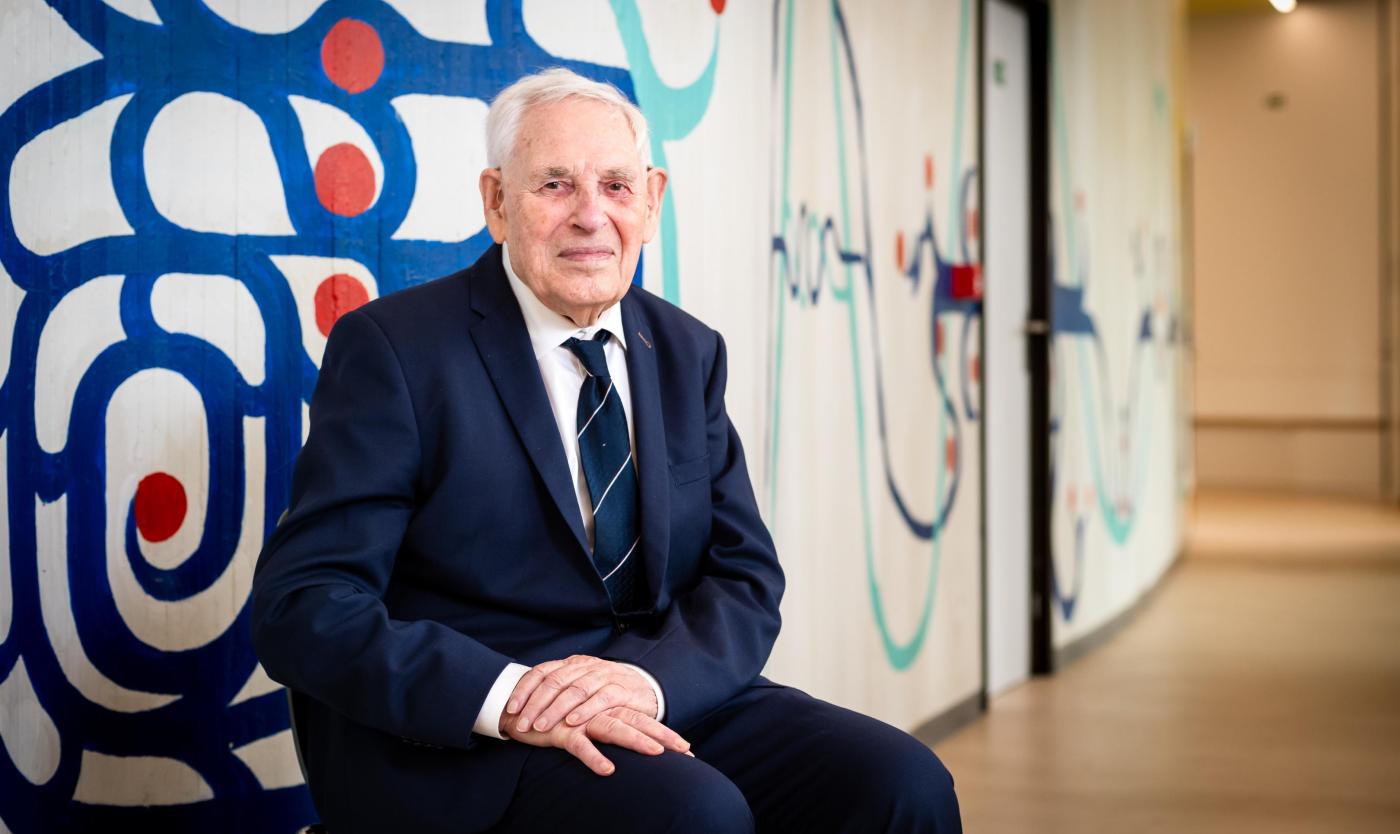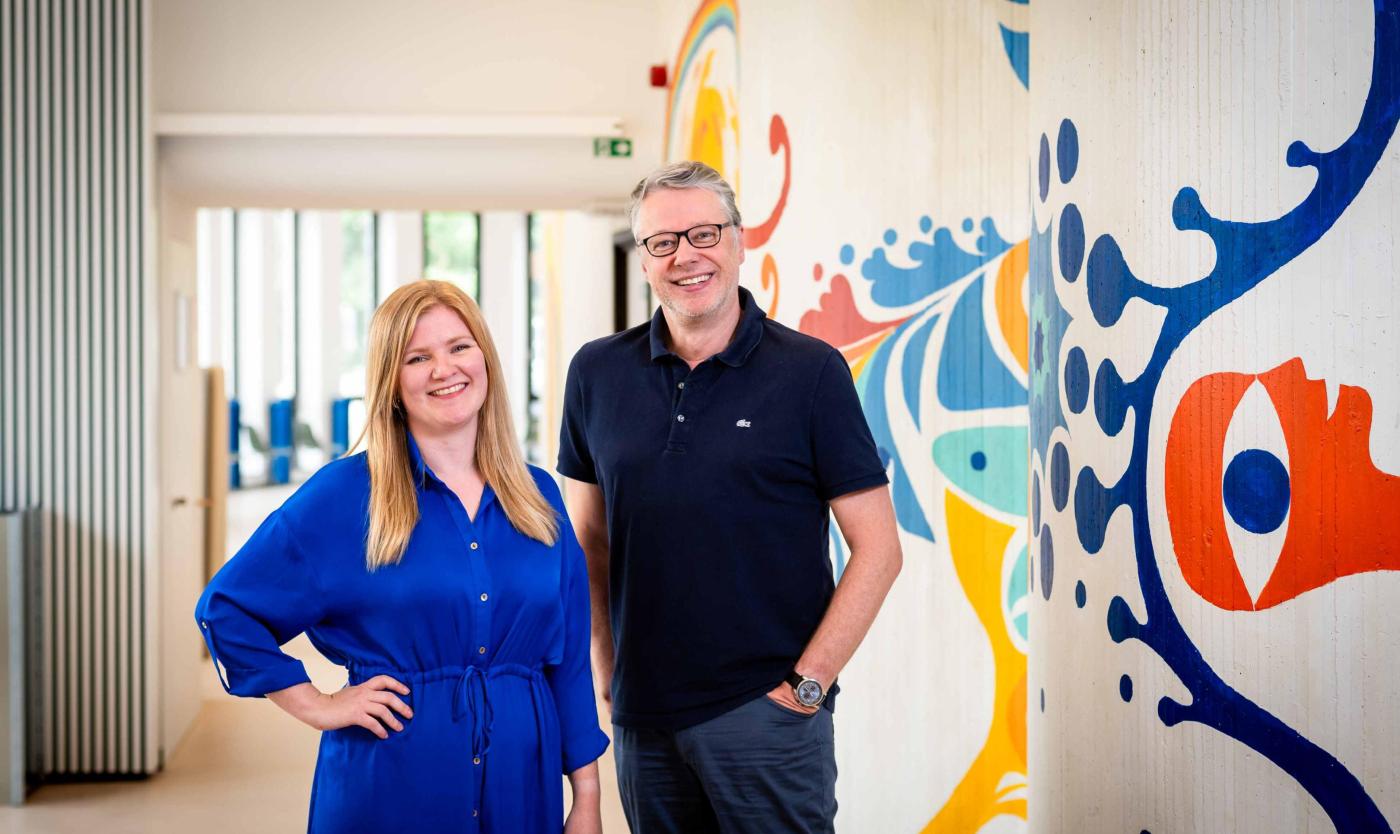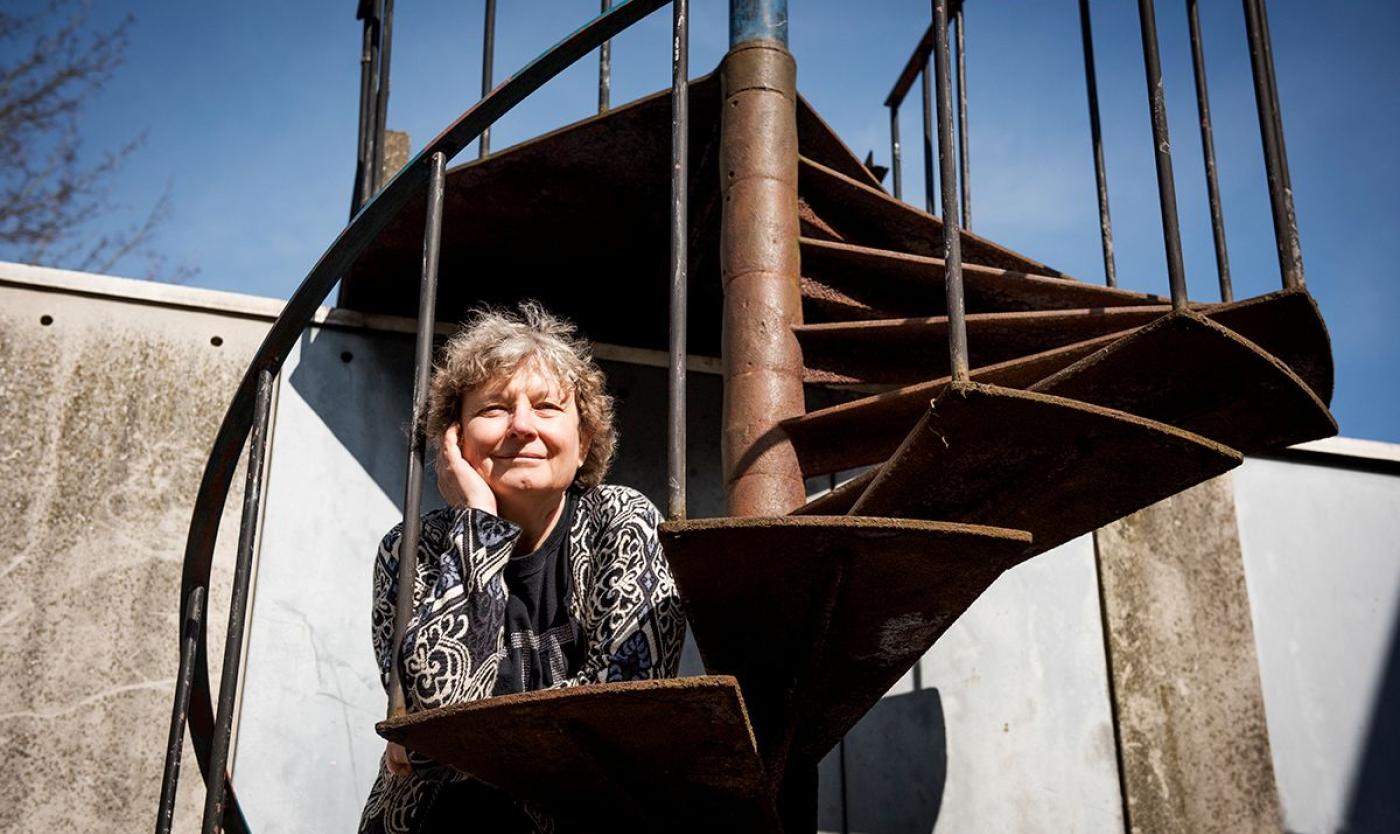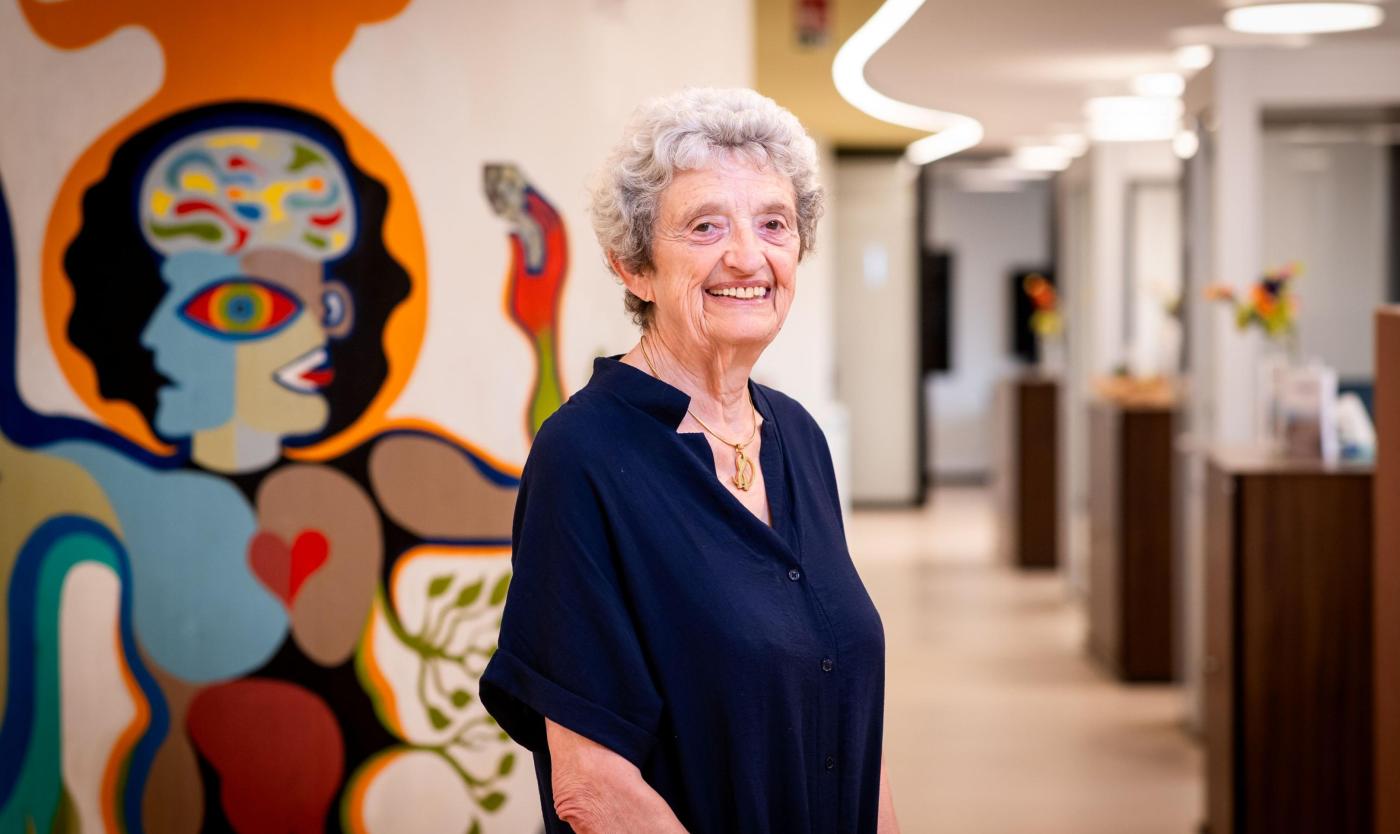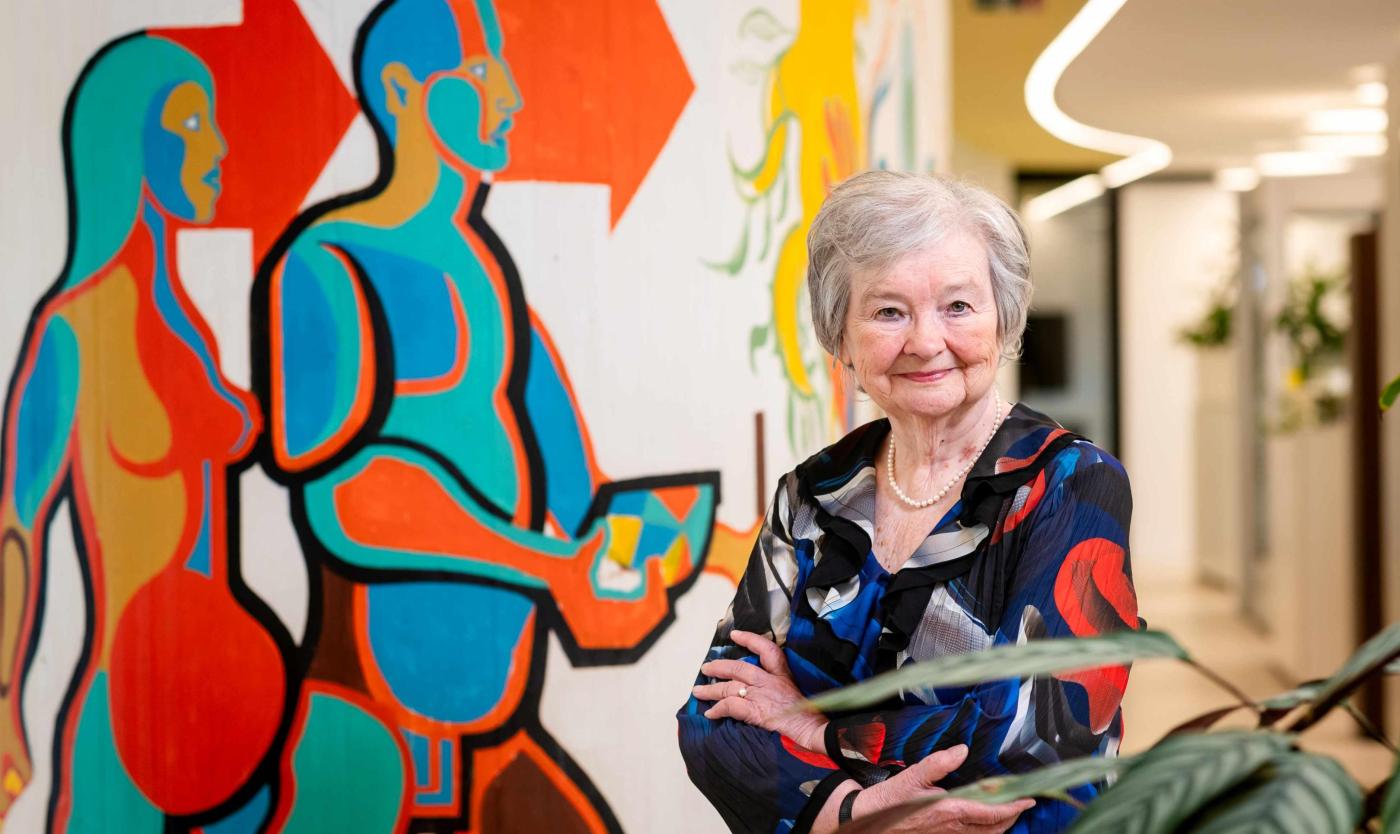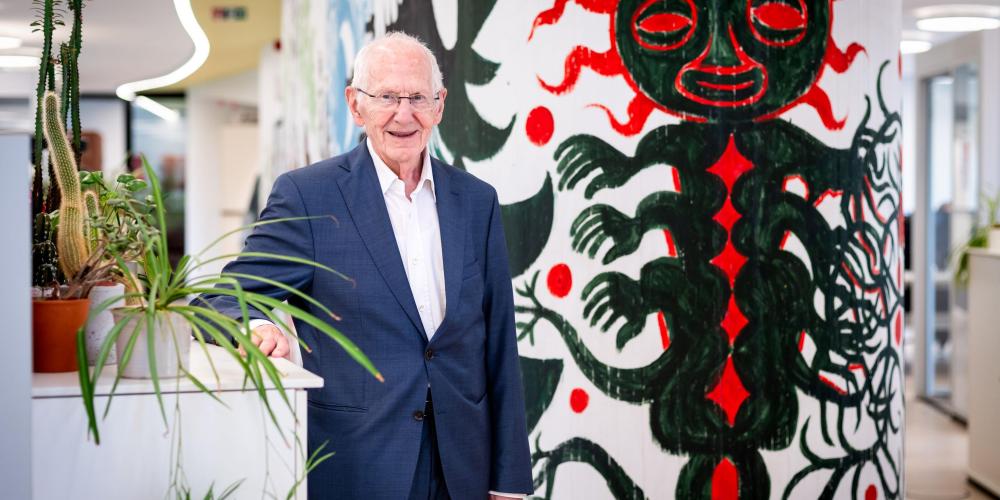
Prof. em. André Van Steirteghem (b. 1940) is a pioneer in fertility research. Originally trained as a paediatrician, he co-founded the fertility clinic at the VUB and developed the ICSI technique – today the worldwide standard treatment for male infertility. “ICSI gave fertility treatments a huge boost, including at our own clinic.” Prof. emeritus Inge Liebaers is the other namesake of this Liebaers–Van Steirteghem award.
Read here about VUB pioneer Inge Liebaers
The ICSI technique is undoubtedly your greatest contribution to science. Can you walk us through how you came to that discovery?
“I began my career as a paediatrician, working in eastern Congo with severely ill children. Later, I spent several years conducting fundamental research in the United States. When I returned to Belgium in 1977, I was asked to set up one of the laboratories at the newly established UZ Brussel. It was there that I met gynaecologist Paul Devroey.
Louise Brown, the world’s first IVF baby, had just been born. Paul was eager to start IVF as well. Together, we travelled to Australia, where the researchers explained the process to us in a very open and transparent way. Back at the VUB, we prepared everything to begin IVF ourselves – always as a multidisciplinary team, as we had seen in Australia. In 1983, Tina, the first IVF baby in Brussels, was born.”
"Between 1980 and 2025, some 60,000 children were born thanks to fertility treatments at the VUB"
“In the following years we achieved reasonably good results, but increasingly we ran up against male infertility issues. To tackle this, we began experimenting with mice. We tried, under the microscope, to guide sperm closer to the eggs with a fine needle. Directly injecting sperm into the eggs didn’t work at first – the eggs were damaged.
But occasionally, by accident, the needle pierced the egg and the sperm entered. From our mouse work, we called this a failed attempt. Until we noticed that some of those ‘failed’ eggs actually fertilised and began to divide. At first, we did nothing with them. But in 1991, with one patient, the only fertilised embryo came from such a so-called failed attempt. After careful discussion, we transferred it. A healthy baby was born.
That chance discovery was the beginning of ICSI. We refined the technique afterwards, of course, but there is no doubt: ICSI gave fertility treatments a tremendous boost, including in our own clinic.”
Who or what gave your career its decisive turn?
“Between 1980 and 2025, some 60,000 children were born thanks to fertility treatments at the VUB. Here, former Health Minister Frank Vandenbroucke played a crucial role. In 2003, he helped ensure that fertility treatments were largely reimbursed. That made treatment accessible to everyone in Belgium – and that is fantastic.
At the time, reimbursement was by no means an obvious decision. There were concerns about the high rate of twins and triplets, and the associated medical costs of premature births. We entered into dialogue about this. Together with the reimbursement scheme came the rule that only one embryo could be transferred in the first attempts. This dramatically reduced multiple pregnancies, and indirectly reduced costs – which freed up funds for reimbursement.
I later met Vandenbroucke again, when I was chairing the Ethics Committee of the Health Council. When I reminded him of the law on reimbursement, he told me it was one of his best experiences as health minister – because he truly felt he had made a difference. I agree.”
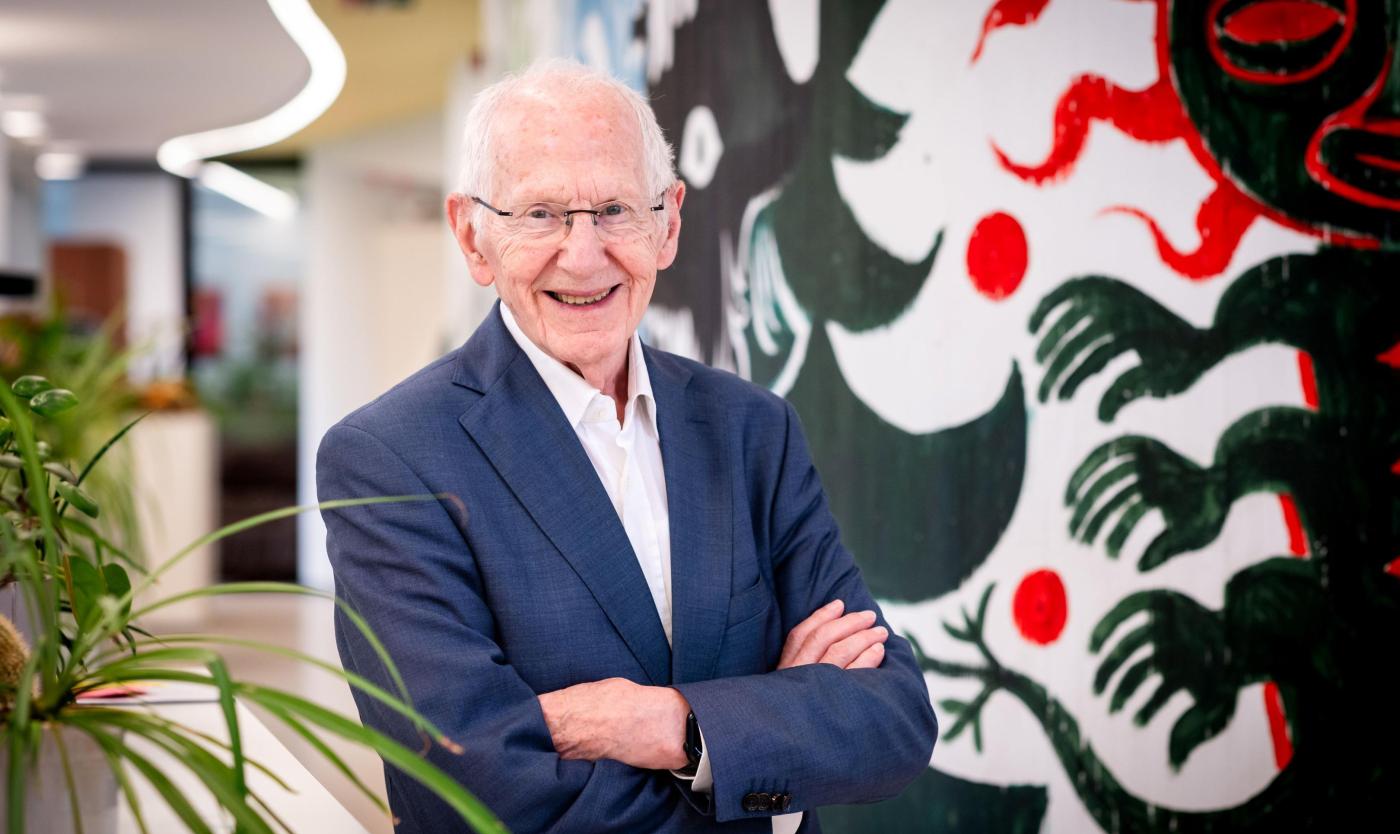
"I strongly believe that if you are open about what you are doing, you will also benefit from it yourself"
What was your hardest moment – and how did you overcome it?
“When you do fundamental research, you sometimes hit a wall. In the US, I was lucky to work in a very strong research group, where communication was completely open. Whenever something went wrong, I could always turn to colleagues for advice. I experienced the same openness in Australia. I never forgot that, and I’ve stuck to it throughout my life. I firmly believe that if you are open about your work, you ultimately benefit from it yourself. So if anyone asked whether they could come and see our clinic, my answer was always yes. The whole world came through Jette – even colleagues from Leuven, Ghent or Antwerp. Everyone was welcome to join a workshop.”
Where do you see your field heading?
“There has been enormous progress. The success rates are far better than when we started fertility treatments. But ethical questions remain – take, for instance, the current debates around sperm donation. Since 2007, there has been a law in Belgium that limits the number of families who can use sperm from the same donor. But enforcement was too slow. Only since January 2024 has there been a national donor registry. That delay, combined with recent cases, has attracted a lot of negative media attention. But I think UZ Jette has handled this very transparently, both in the press and towards patients. If patients have concerns, they can book special consultations. Two of our doctors spend most of their time providing information. That openness in communication is a hallmark of our fertility centre.”
Where do your work and your passions meet?
“I do have hobbies, but since retiring in 2005 I have remained closely involved in my field. For eight years, I was editor of Human Reproduction, one of the leading journals in our discipline. Every year I attend the congress of ESHRE (the European Society of Human Reproduction and Embryology), which I co-founded with Paul Devroey. The first congress in Bonn in 1985 attracted 600 participants. In 2025, the 41st congress in Paris drew more than 12,000 participants. I also remain connected to Brussels IVF, where I have been honorary consultant for 20 years. I still go to the UZ campus weekly, meeting both the clinic staff and researchers. Of course, I no longer have any formal role, but I enjoy keeping in touch with the younger generation. I like hearing about their projects – and occasionally they ask me for advice. Finally, last year I published Egg Seeks Sperm for a Steady Relationship – a book telling the story of IVF research at the VUB. So yes, I remain deeply engaged.”
About the new science awards
In 2025, VUB launched a new research awards policy in collaboration with the Scientific Support Fund. In addition to the existing Roger Van Geen Prize for exceptional scientific careers and the Ignace Vanderschueren Prize for doctoral research, both already awarded by the Vice-Rectorate for Research, seven new prizes have been created, named after pioneering figures from VUB’s history. With this policy, the university aims to recognise outstanding scientific work at every stage of an academic career.
An overview
- Hilde Bruers Award – Life Sciences (young researchers, max. 10 years of seniority)
- Paul De Vroede Award – Human Sciences (young researchers, max. 10 years of seniority)
- Ingrid Daubechies Award – Basic, Natural and Applied Sciences and Bioengineering Sciences (young researchers, max. 10 years of seniority)
- Franz Bingen Award – Basic, Natural and Applied Sciences and Bioengineering Sciences (mid-career researchers, 10–25 years of seniority)
- Liebaers–Van Steirteghem Award – Life Sciences (mid-career researchers, 10–25 years of seniority)
- Els Witte Award – Human Sciences (mid-career researchers, 10–25 years of seniority)
- Sylvain Loccufier Award – career award for researchers who combine scientific excellence with social impact in the spirit of the values of the VUB
Procedure
The Roger Van Geen, Hilde Bruers, Liebaert–Van Steirteghem, Franz Bingen and Sylvain Locufier Prizes will be awarded biennially from 2026 onwards. The Ignace Vanderscheuren, Paul De Vroede, Els Witte and Ingrid Daubechies Prizes will follow the same rhythm from 2027. The call for nominations is issued in September, with 15 December as the submission deadline. Files are evaluated by the Bureau of the Research Council or by an ad hoc committee (for the Sylvain Loccufier Prize). The Scientific Support Fund makes its final decision by 30 March, and the award ceremony takes place before 30 May.
The prize money is €5,000 for young researchers and €10,000 for mid-career researchers, in each case in the form of a working credit. The Sylvain Loccufier Prize does not involve a cash prize, but a work of art.
View the Vice-Chancellor's call for 2025(through WeAreStaff)
*For medical reasons, it was not possible to interview Prof. Emeritus Franz Bingen in time for this series.
